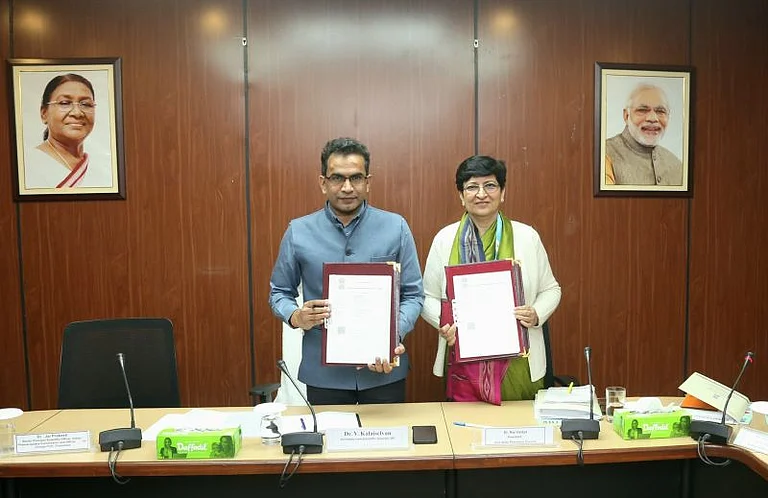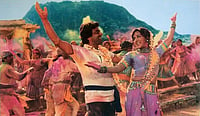A nation-state is a state legitimised by the People. Or to put it another way, a state constituted by a People is a nation, as opposed to a state based upon a hierarchical principle such as divine right, dynastic power or apostolic succession. The often-invoked People are theoretically equal citizens but they are not necessarily franchised.
Most states in the world today either are or pretend to be nation-states. The People are variously defined, either by a Romantic rhetoric of blood, race and history or by the more democratic ideas of equality and freedom. For some, like Hegel, the nation-state was the end or goal of history; for others like Mazzini, it was a stage in the creation of a more humane world.
For most of the 20th century, an assortment of politicians and theorists have tried to dream up alternatives to the nation-state. The stairwell of my university department is plastered with posters pasted up by the Students Islamic Movement. They bear slogans that most internationalists would support. These slogans denounce nationalism as a divisive poison, as a false god. Their denunciation is made in the name of Islam, according to which the millat (the global community of Muslims) is governed by a khilafat, a state defined by its implementation of the sharia, or Islamic law. There hasnt been a state like that since the middle of the seventh century and given the history of pan-Islamic movements in this century and the record of clerical states like Iran and Afghanistan, the nation-state has little to fear from internationalist Islam.
There have been other attempts to transcend the nation-state, pan-Slavism and pan-Arabism being the most notable. The pan-Slav movement never managed more than an incoherent resentment of the West and a vague sense of oneness based on the Orthodox church and ethnicity. As for pan-Arabism, barely anyone remembers Nassers uar (United Arab Republic) whereas Arab fratricide like Jordans infamous suppression of the Palestinians is as fresh as a new wound. Not much competition there, either.
Alternatively, conflict between nation-states might yield to conflict between civilisations like the Sinic, the Indic, the Islamic and the Western. Let us, for a minute, accept this thesis as plausible. Here we are, in 2030, and the Chinese of East and Southeast Asia are ranged against not just the Muslims of Malaysia and Indonesia but the entire Muslim crescent. In what way would a state that encompassed all Muslims, from Bosnia to Brunei, be different from a nation-state? The term Islam would become a synonym for nation just as the sponsors of Hindutva claim the term is equivalent to Indian-ness. Muslims would be this states People and the history of Islam would become the founding myth of the nation. There is no easy escape from the nation-state.
Nowhere is this more clearly illustrated than in the case of the European Union. If there is one historical development that is cited as evidence for the ongoing supercession of the nation-state, it is the rapid transformation of the European Common Market into a kind of super-state. On the face of it, the case is persuasive. Regardless of what Tony Blair might say, the EUs constituent states have already ceded a great deal of sovereignty to Brussels. For the people who live in the Union, national boundaries have become irrelevant as far as education, employment and travel are concerned and national laws increasingly yield to the strictures of the European Court. Is the EU then, our blueprint for the political entities of the future?
Well, if it is, it simply means that the future is a world of larger nation-states.
Consider. Europe without Russia is marginally larger than India. Europe and India are both subcontinents of similar size. A Europe unified by a single currency, one central bank, a common defence policy, a single passport, a European Parliament, a continental Court, a shared classical past, one constitutive religion, and a common script, seems remarkably like a nation-state to an Indian used to a plurality of languages, cultures and faiths greater than anything Europe has to show. The EU as it exists today is a nation-state in the making. It doesnt force its constituents to radically rethink their culture, their prejudices or their past. Now if it were to expand to embrace all the Mediterranean countries including the Arab/Muslim countries of the Maghreb or if it finally granted full membership to Turkey, then there would be reason to believe that a novel entity, based on something more cosmopolitan and complicated than the simplifying solidarities of the nation-state, was coming into being.
As things stand, India and this emergent European state are comparable, the former founded upon the experience of colonial exploitation, the latter upon the more benign experience of a shared prosperity and the promise of capitalist consolidation. The EUs emergent nationhood seems rather more rationally founded than ours because while greed looks to the future our victimhood irrationally fingers the past. Nationalism as injury was rational once, when it helped us unite against colonialism. With the Raj gone, this feeling of being hard done by is not just self-indulgent, it is dangerous because unfocused grievances invite sectarian answers. Little wonder that the EU has to work to keep countries out while India struggles to hem its fraying edges.
So the 21st century will be, like this one, a century of unequal nation-states. The countries that prosper might consolidate themselves into blocs, each bloc increasingly resembling a nation, while the poorer countries will begin to split at the seams as their citizens rebel against a fellowship of misery.
If the United Nations ever cherished dreams of developing into a global government, it doesnt any more: it is a bankrupt international bureaucracy. What does that leave us? It leaves us with the fantasy of a world completely integrated by technology and the market, where a hybrid population, neither black nor white, but khaki achieves perfect homogeneity via Windows 2050, and absolute oneness through chat rooms and e-mail. Not likely. The only thing that could integrate the world would be unrestricted immigration, the world thrown open to a universal people. It didnt happen in this century and it wont happen in the next because open borders and free trade were meant to free things, not bodies. Perhaps the imminence of environmental catastrophe might give poor countries the leverage to push through a just global regime: but nothing short of apocalypse is going to abbreviate the career of the nation-state.
























